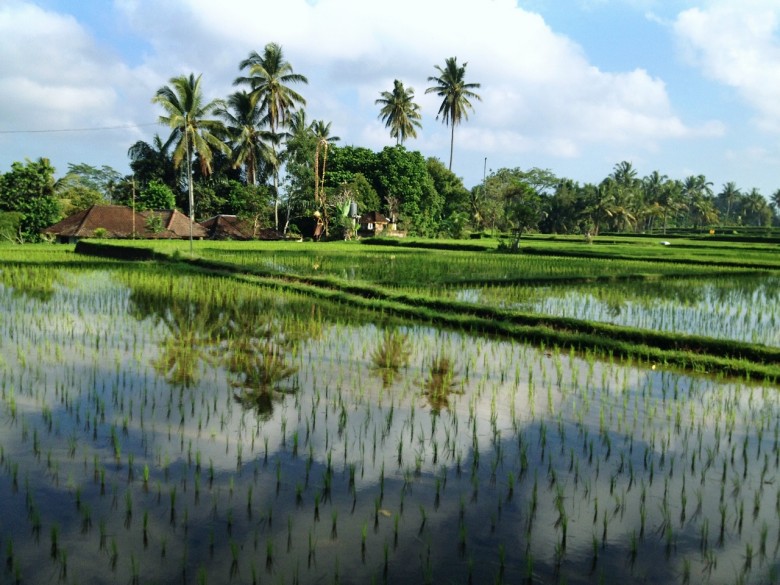
Put a picture to paradise and many would say that Bali is the first to come to mind. Its tropical name rolls off the tongue with a lilting promise of lazy hammock days swaying beneath palm tree canopies. But past the picturesque postcard scenes, if you are planning a trip to Bali, there’s a lot more you need to know about this idyllic island.
When I kicked the corporate bucket and moved to Bali earlier this year I had an idea what life would be like – sun, surf and yoga – but turns out it was this, plus a whole lot more!
Whether you are planning a two week honeymoon, a lengthy trip or even a permanent move, you’ll need the local’s lowdown on Bali living. So, here’s my practical all-you-need-to-know expat’s guide to living in Bali. From finding a home to learning the language and all the other adventures you are bound to have in between.
My insider tips and tricks will cover the following:
- Renting a home
- Health care
- Shopping and bargaining
- Eating out
- Staying safe on the roads
- Learning the language
Renting a home
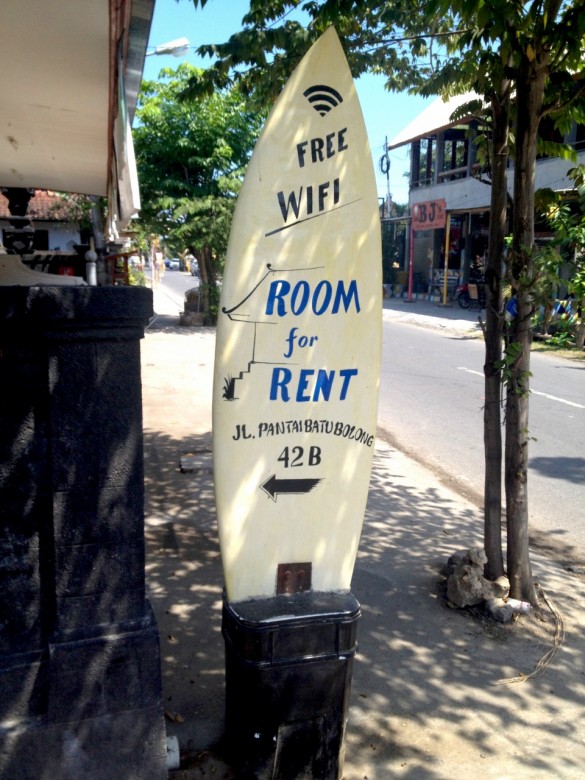
Whether it’s a five bedroom villa with rooftop yoga studio or a one-roomed, sea shower shanty you’re after, Bali has a home sweet home for everyone. Monthly rentals are generally quite reasonable compared to Cape Town or Johannesburg. For example, you can live in a decent-sized studio with small private garden for R3350 per month; water, electricity, wifi and cleaning service included. And if you are willing to pay for 6-12 months upfront, you can get an even sweeter deal.
Bali is a mecca for construction with new apartments and extensions being built all the time. Slow island life aside, you’ll be amazed by how quick these buildings go up! Keep an eye out for “terima kos/ room available” signs; you’ll easily find a short term or daily rental just by driving around and phoning the numbers displayed. Some of the places may appear only half finished, but, believe me, they will be brand-new and ready to rent by month’s end.
Tip: With most things in life, the best deals are to be found through word of mouth, so ask around to find the best location and prices.
Health Care
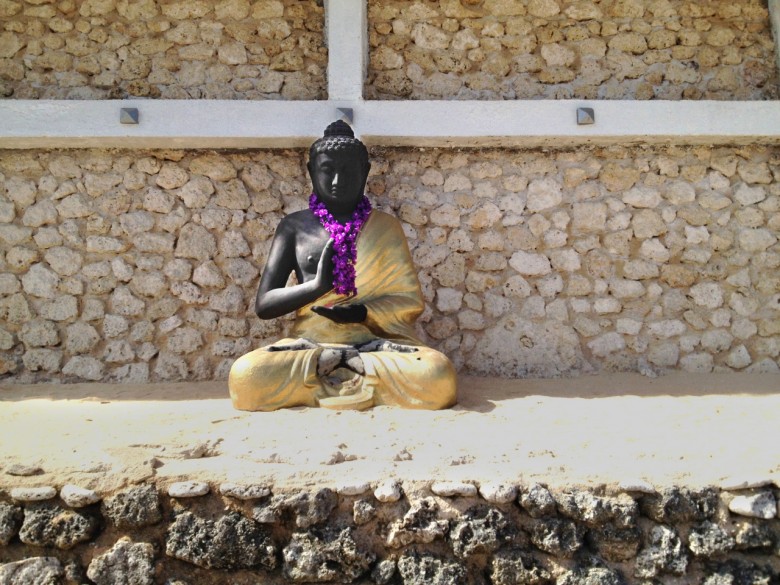
Basic supplies like flu and cold medicine, bandages and vitamins are more affordable than back home and can be bought from most cornerside shops. Apoteks (pharmacies) are frequent features on Bali’s streets and offer a wide selection of over-the-counter medication.
If you require a doctor or emergency assistance you can play it safe and visit the International SOS clinic or BIMC Hospital, both located in Kuta, and providing highly-professional, English-speaking doctors. Or, for a much cheaper and entirely sufficient second option, you can call in at a local group practice medical clinic. If you have invested in medical insurance (I recommend this), carry cash with to your appointment. Credit card facilities are scarce in Bali so you’ll have to pay upfront and claim back later.
And be warned, Bali Belly is real! My whole life I’d done a good job convincing others that I have a really strong stomach (this accounts for my 10 minute rule where others of the weaker digestive tract opt for a safer 10 second rule). But, not even I was saved from the sometimes sketchy hygiene standards of Bali street food. It’s a common tummy condition though and can be easily treated with a strong dose of antibiotics.
Tip: On this note, do not by any means drink tap water. Only ever consume water bought in bottles.
Shopping and Bargaining
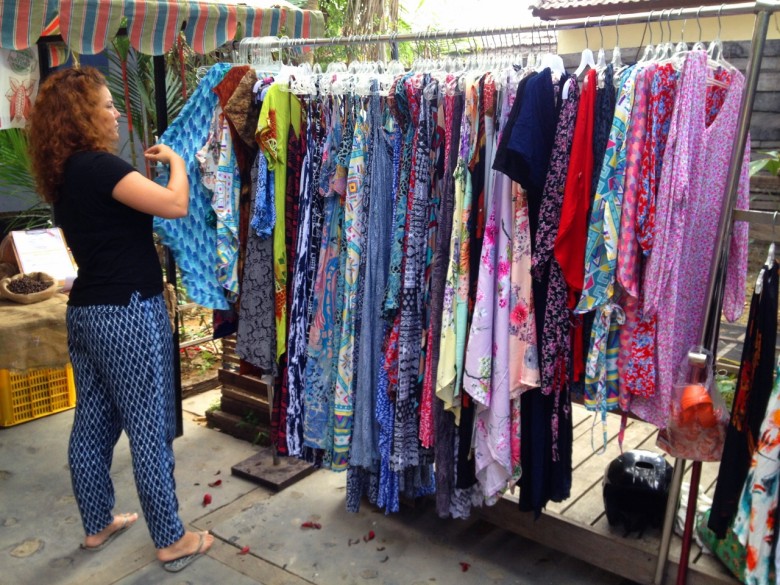
Seaside office or rice paddy villa aside, life for the expat in Bali can be challenging. Everyday is a new day to battle with bulé (Westerner) prices. When hitting the street stalls or markets, bring your bargaining A-game. Locals hike the price when they see a foreign face and aren’t bought with tales of South Africans being financially worse off than Australians (trust me, I’ve tried) so your best bet is to do the haggle hustle. Decide beforehand what you’d really be willing to pay for the item and don’t settle for too much above that.
Tip: Another handy insider trick is to use the phrase “kurangi dikit” (local price) coupled with a pleading look. Attempting just a couple of broken Bihasa Indonesia words will make the shop owner smile, likely laugh at you and at best, lower his price.
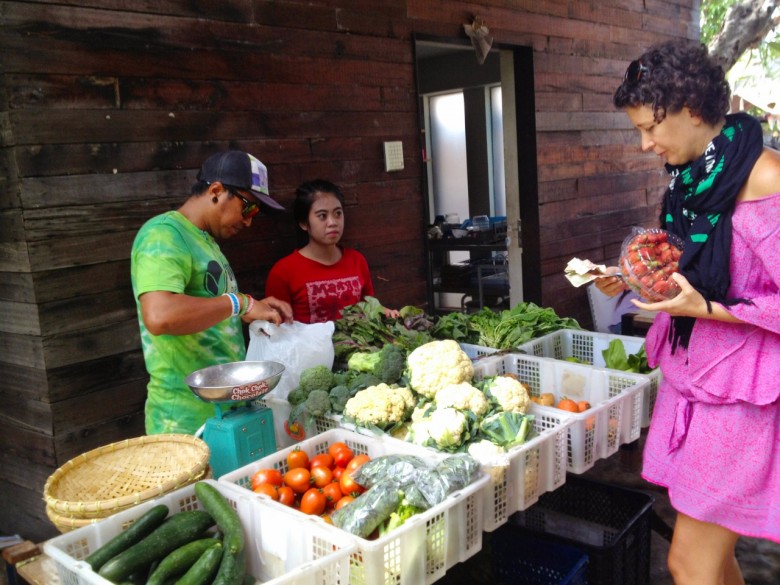
On just about every street corner you’ll find an Indomart, Alfamart or Circle-K. Here you can buy simple household and toiletry supplies, cigarettes, snacks, but not much else. For your fruit and veggies, local markets are the way to go and for bigger grocery buys you will need to head to a supermarket like Carefour, Bintang Supermarket or Hardys.
Bali is an island after all, so pleasures we are accustomed to back home like affordable dairy products or even dental-floss are not easy to come by. Best get your fill of camembert and gruyère before you come over, and pack a box of floss or two for the ride.
Eating Out
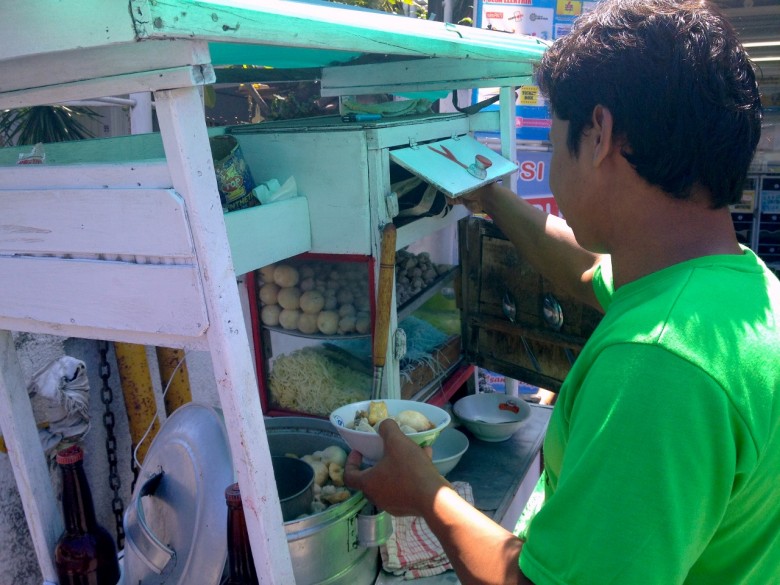
Not much of a cook? Then Bali is the perfect place for you! The streets are lined with warungs (little shops), food carts and even pavement barbeques, offering up a variety of Indonesian-style cooking. Devour roasted mielies smeared in chili butter, or tuck into a whole fresh tuna braaied on the street and served in brown paper with spicy sambal on the side.
At ultra budget friendly prices (an 800g tuna bought in Denpasar will set you back a mere R20), you could easily survive on street food alone. Many brave expats do but for a short time only. Your pocket may love you forever but your pancreas will not! With their penchant for palm oil and love affair with sugar, food vendors hold taste high above health on the agenda.

Tip: The first snippet of Bahasa Indonesia I learnt was “sedikit gula” (little bit of sugar) and “tidak gula” (no sugar). This comes in handy when preventing your freshly blitzed fruit juice (think tropical choices like dragon fruit, durian or papaya) from being unexpectedly heavily laced with sugar.
Staying Safe on the Roads
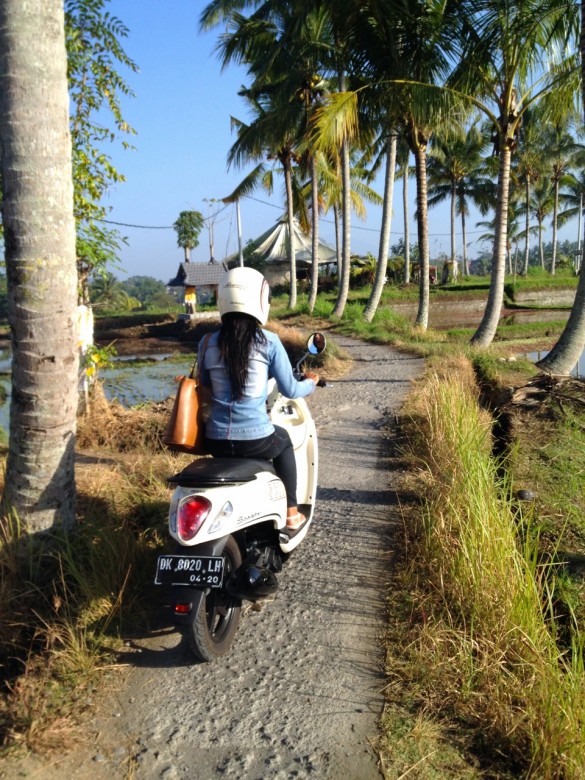
If you think the bustle of big city traffic is bewildering, get ready for island style driving. Bali may have less cars on the road but it also has less traffic lights and less road rules. Add in a couple thousand scooters zooming in all directions and you’re in for a real treat.
When I first located to Cape Town I realised that, to be safe and sensible, I had to start driving like a Capetonian (interpret that as you will). Moving to Bali taught me the same lesson. Shortly after learning how to maneuver a scooter, I learnt how to cruise over corroded dirt roads, scoot past cars on the pavement and follow the stream of traffic down one ways (in the wrong direction) if that’s where it was heading.
TIP: My best advice is to just be confident. If you want to take the gap, take it. Don’t hesitate, or the other drivers will sniff your fear and push in front. Also, get used to the sound of hooters. If someone hoots at you it’s not because you are doing something wrong, they’re just letting you know they are about to overtake from behind. Bali drivers are actually very courteous.
Learning the Language

The language spoken in Bali is Bahasa Bali, a dialect of Bahasa Indonesia (Indonesian) which is spoken more widely throughout Indonesia. The two languages are very similar save for a few words and phrases that the Balinese have painted with a local flavour. The only major difference to English that might take some getting used to, is that adjectives are placed after the noun, not before it. So don’t be surprised if you see a sign advertising “juice strawberry”.
Here’s a couple of important phrases to get you learning the lingo:
How are you? Apa kabar?
I am fine Aku bagus/ aku baik
Thank you (very much) Terimikasi (banyak)
Yes Ya
No Tidak
I don’t understand Aku tidak mengerti
How much is? Berapa haga?
How much is the fare to…? Berapa haga karcis ke…?
Where is the…? Dimana…?
What is this? Apa ini…?

Respect Bali
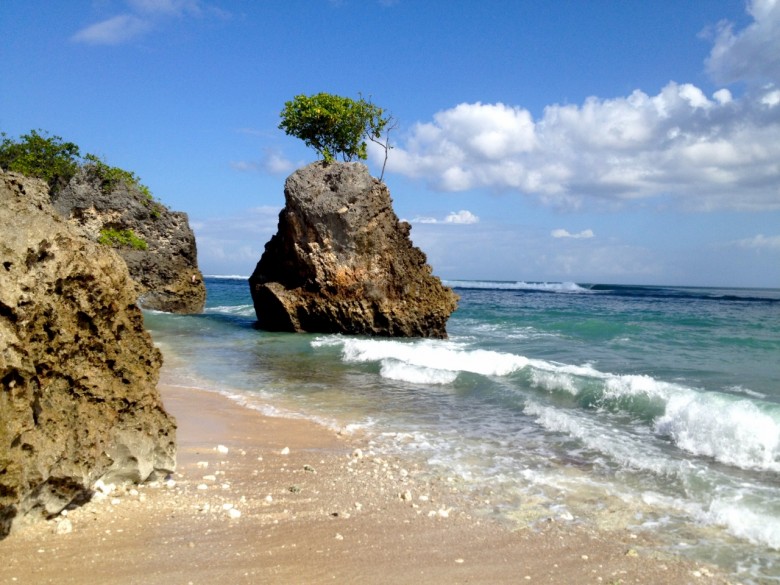
So there you have it, my practical insider guide to life in Bali. This tropical idyll is so much more than the turquoise ocean coastline caught within the four corners of a postcard. It is a thriving, albeit slow paced, existence offering a colourful culture and laid-back lifestyle like no other. It is an utterly unique experience that I full-heartedly suggest everyone give a try.
My last bit of advice is – respect Bali and she will respect you back. They say that karma works quicker in this Island of The Gods, so keep humble, be gracious and treat her lands and people with the reverence they deserve. Send out happy vibes, keep your intentions and interactions pure and you’ll be amazed by what you’ll receive in return.

